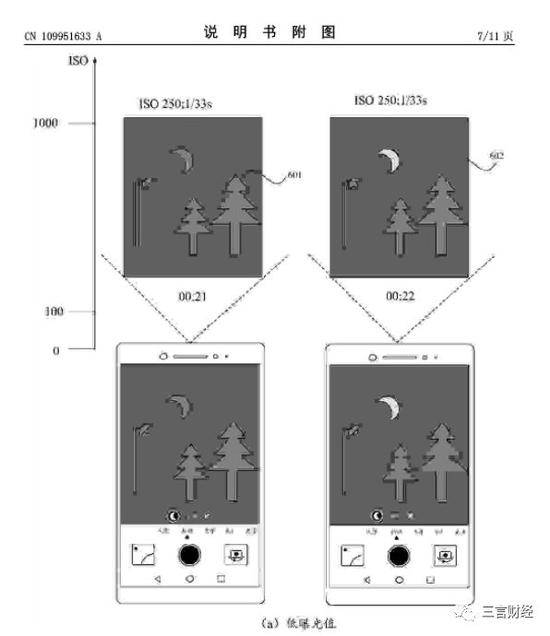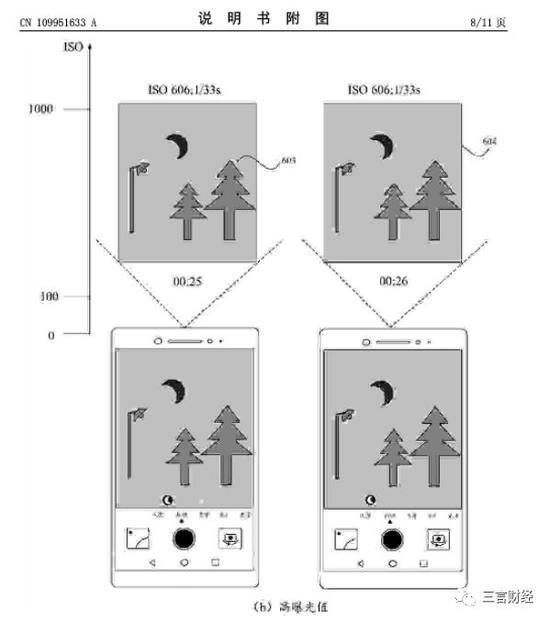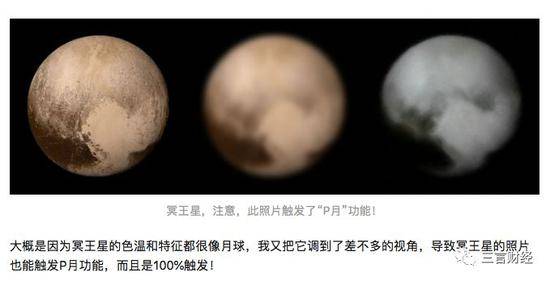Enhance moon detail and resolution with AI using multi-frame fusion technology
Judging from the latest patents issued by Huawei, Huawei has protected the four methods of shooting the moon, the electronic equipment used to implement the method, and the corresponding procedures and instructions.
Specifically, when the electronic device recognizes the moon, it enters the moon shooting mode, thereby automatically focusing the moon, so that the outline image of the moon is displayed in the preview interface.
According to the user’s shooting operation, a multi-frame moon image with clear contours under different exposure parameters is collected, and the acquired multi-frame images are processed differently.

Simply put, Huawei’s steps to shoot the moon are as follows:
1. Take a set of photos with low exposure values first, and generate a photo A with low exposure value and clear moon through fusion and AI technology.
2. Take a set of high-exposure photos, through fusion and HDR enhancement technology, to generate a low-exposure value, clear background photo B.
3. Finally, A and B are merged and processed by AI to generate a final photo image.

However, the multi-frame fusion technology is a technique for properly selecting a plurality of real photos, which is different from the fact that the PS changes the real photos at will.
The patent also mentions that the use of AI technology can enhance the details and resolution of the moon, thus obtaining images of the moon including ultra-clear.
The shooting process given in a special class shows that AI enhancement technology is only used for the moon body, while the background uses high dynamic range (HDR) enhancement technology.

HDR is a technology that can combine multiple frames of different exposure values to output a larger dynamic range image.
Compared to normal images, HDR can provide more dynamic range and image detail, using low dynamic range (LDR) images for different exposure times, using LDR images with the best detail for each exposure time. To synthesize the final HDR image, it can better reflect the visual effects in the real environment.
However, in this patent, Huawei only mentioned that AI technology can enhance the details and resolution of the moon, but it does not explain how the AI technology specifically enhances the details and resolution of the moon.
In addition, Sanyan Finance found that this method of shooting the moon can be applied to mobile phones, tablets, wearable devices, car devices, augmented reality / virtual reality devices, notebook computers, super mobile personal computers, netbooks, personal digital assistants and other electronic On the device.
The method and device applied for in this patent are not specifically for the Huawei P30 Pro, but a universal moon shooting method and corresponding equipment.
Conclusion
This means that after the patent is passed, other mobile phone manufacturers use the same method and equipment structure to achieve the moon, they must pay the patent fee to Huawei, otherwise, it is suspected of infringement.
Three words of financial discovery found that the focus of the debate is that different people have different definitions of P maps.
Some people have suggested that “P” and AI optimization are different. The meaning of “P” is that there is nothing that is not added according to the actual situation, and Huawei P30Pro is optimized on the content.




![How to use History brush tool in Photoshop – 2020 [New] Working of History Brush Tool](https://gizprix.com/wp-content/uploads/2019/11/Working-of-History-Brush-Tool-1-100x70.jpg)





